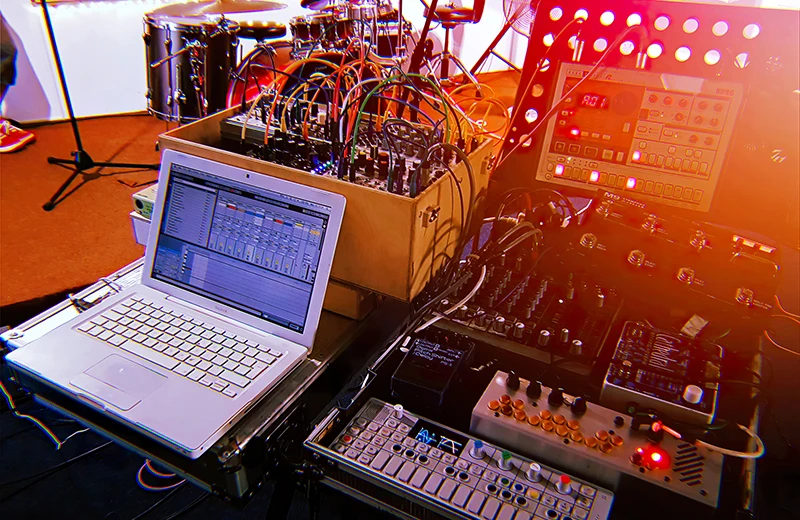You must know your material inside out and be able to perform it; instinctively.
2. Work out the starting tempo of your songs.Use a metronome to familiarise yourselves with the tempo of each of your songs. You don’t have to rely on it for the whole song but you can certainly use it as a guide before you start.
3. Conduct your own pre-production.Before entering the studio, take your songs apart. Make sure no-one is doing anything weird or out of key. You can guarantee that there’s some overlooked bass scale that no-one ever noticed. Don’t wait until you’re in the studio to discover it.
4. Record rough demos of your songs and review them.All phones are capable of recording high resolution audio these days. Get into your practice space and stick a phone in the middle of the room. Listen back to the recording and make sure you’re not dragging your heels or speeding up in weird places.
5. Use good equipment.Recordings are only as good as the instrument being played. Make sure your equipment is the best available and appropriate for the results you want to achieve. Don’t rely on the engineer to “get you a good sound” (note that “good” ≠ “expensive”).
6. Ensure your equipment works properly.Turning up with a broken input jack is a huge waste of time. There’s no reason for it.
7. Use fresh strings, skins, drumsticks and reeds.Fresh strings cut like a knife. Old, knackered breakables tend to sound old and knackered. Get that snare sounding as good as it can ahead of the session.
8. Choose your instruments wisely.Don’t wait until the mix before talking about what you want the snare to sound like. If you want the snare to sound more “snappy”, you need to play a “snappy” sounding snare drum.
9. Prepare any necessary files/samples/projects in advance.Don’t have your engineer wading through your memory stick searching for “backing-track-NEW-v7.wav.aif”, which you’re sure should be on there somewhere.
10. Bring spares.The phrase “Has anyone got a spare E string?” could be the death knell of your recording session. Be prepared!
11. Don’t be greedy.One good song done really well is worth more than 4 rushed songs.
12. Recording is not a magic wand; it reveals truth.There is not a magic wall that separates the Live Room from the Control Room. Poor musicianship going in equals a poor sound coming out.
13. Be realistic about your expectations.Rome wasn’t built in a day, and Nevermind wasn’t recorded in a weekend.
14. Make sure that all your bandmates are aware of and prepared for the session.“Ah shit, our drummer thought the session was next week!” Facepalm.
15. Don’t go out and get shitfaced the night before your session.Recording is hard work and can be mentally fatiguing. Undertaking a session having slept for 2 hours on your mate’s floor is suboptimal.
16. Budget sensibly for your session.If you want stellar results then be realistic about the financial investment required to get you there.
17. Don’t put too much pressure on yourselves.Music is about personality as much as it is about technical craft. The less stressed you are, the more you enjoy yourself and the better your take is likely to be.
18. Make sure everyone in the band is on the same page.Band arguments over how a song should sound are detrimental to band relations, and seriously slow the recording process down. Make sure you all agree who is in charge and resolve any conflicts prior to your session.
19. Don’t be precious.Sometimes ideas don’t work, guitar tones don’t fit, and the take isn’t right. Don’t be afraid to be brutal for the good of the song.
20. Arrive well-rested and on time.Prepping your travel arrangements in advance and knowing your route will ensure that you don’t arrive stressed.
21. Factor in set-up time/room for error.A number of things can go wrong in a recording that need time to solve. Bare this in mind when planning your session.
22. Don’t be afraid to speak your mind.Not everything can be solved in the mixing stage, so if something doesn’t sound right to you during tracking, speak before it’s too late!
23. Don’t let the engineer call the shots.Remember that the engineer works for you, not the other way round! When all is said and done, your decision is final.




